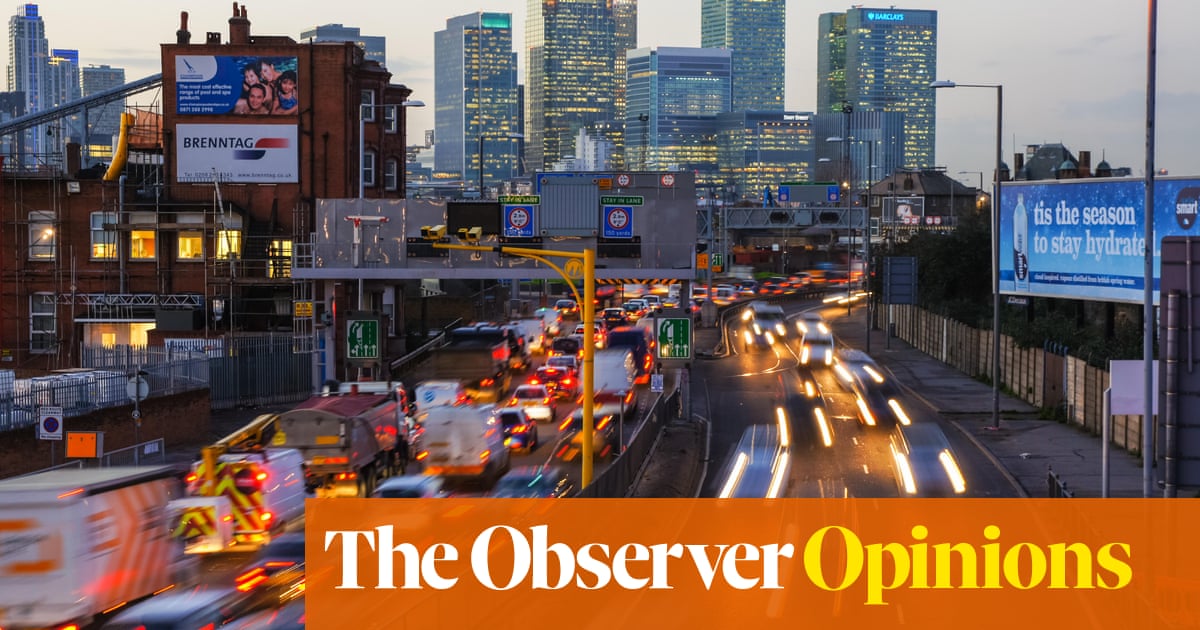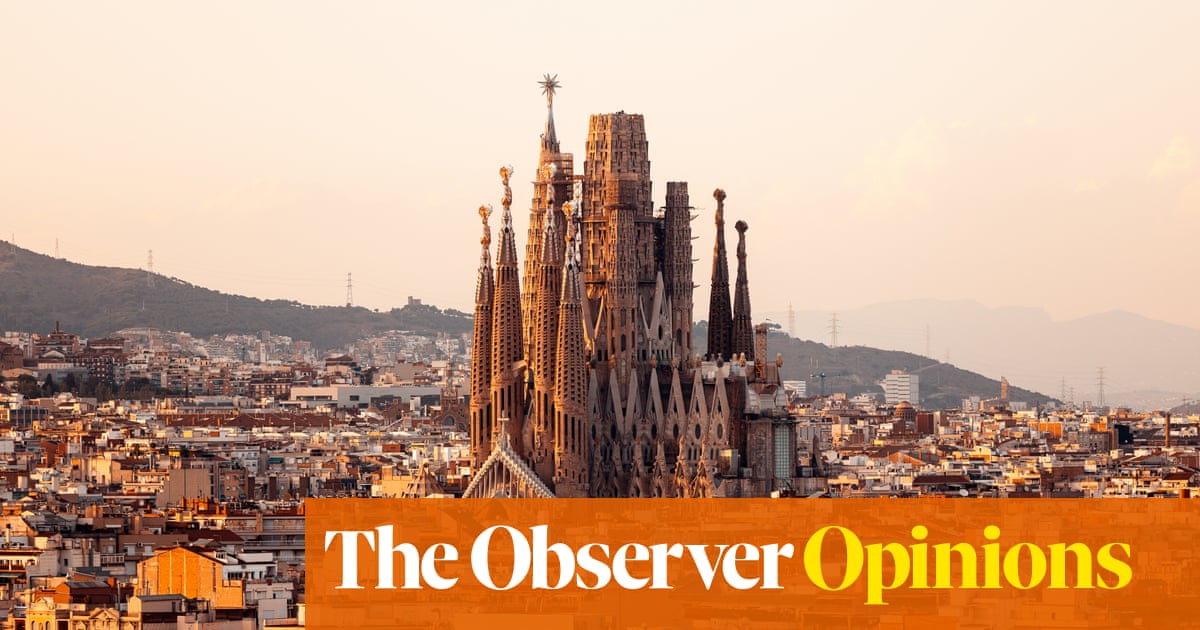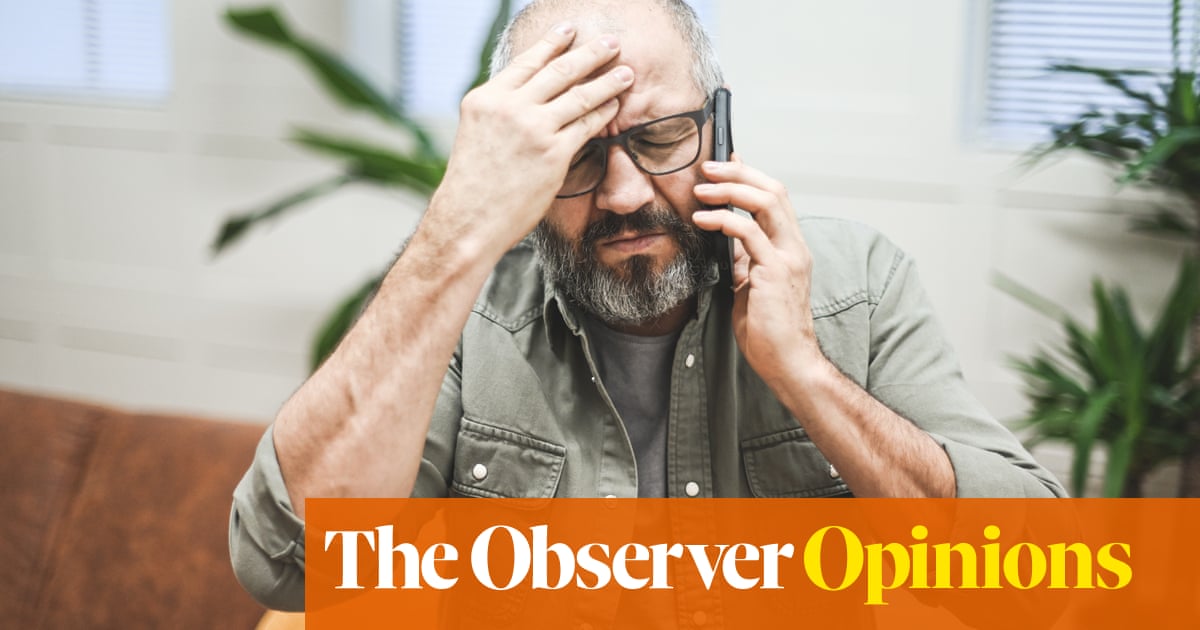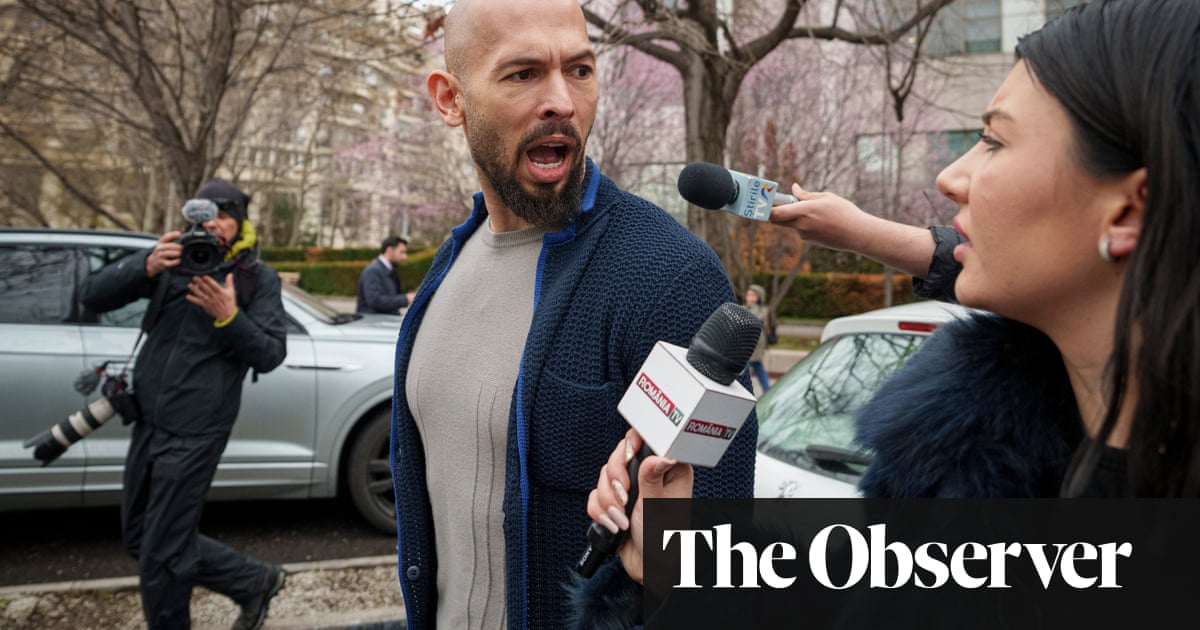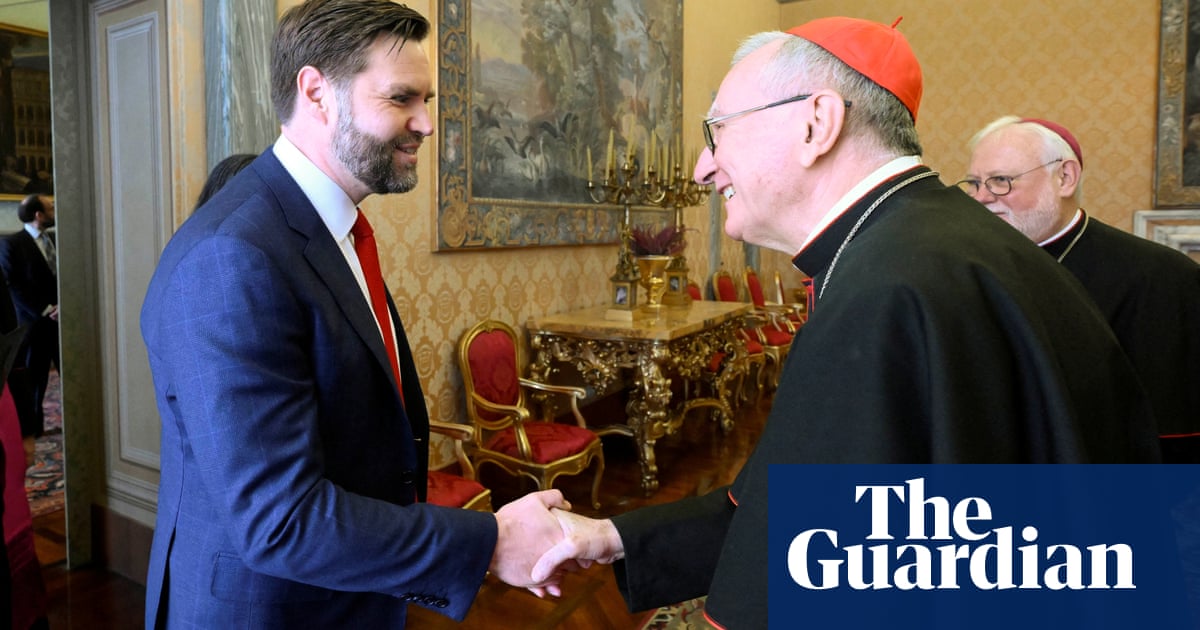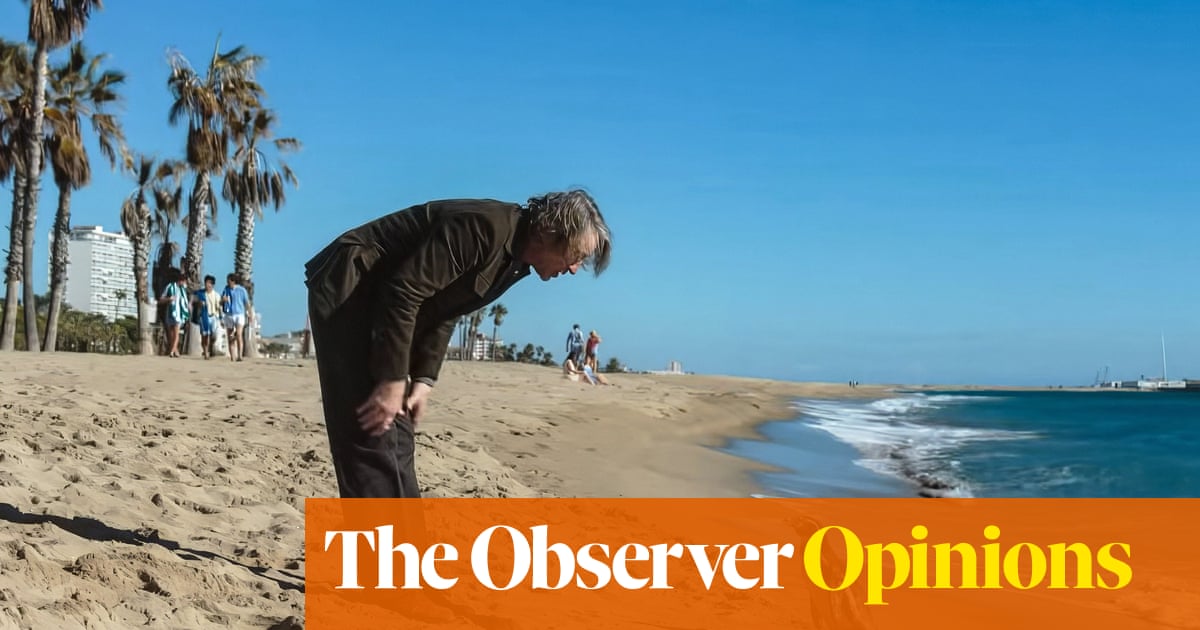Timothy Snyder was not surprised to be asked to help rebuild a Ukrainian library bombed by Russia. After all, he’s a Yale history professor and bestselling author with 12 books to his name, many about Ukraine and Russia.
But he had a different idea.
“It was the ethical choice to raise money for drone defense rather than for a library,” Snyder says. “Because raising for drone defense actually saved lives. Those people who are still alive, they can go to a library later. So no, I don’t wrestle with it. On the contrary, I feel glad and privileged that I was given that choice.”
Snyder is discussing his role as an ambassador for United24, a fundraising platform set up by Volodymyr Zelenskyy, the president of Ukraine. There is more success to celebrate: funds raised to buy robots to remove Russian landmines.
Like drone defense, for Snyder “there’s no offensive component but it is nevertheless a military thing … we’re trying to clear mines from territory so Ukrainian civilians can return. I’ve enjoyed it. I’m glad we’ve done it. In September, I went to a military base outside Kyiv and watched these three robots compete against each other, which was very pleasant and interesting. And I met some of the engineers and some of the people from the companies making these robots, plus the ministry of digital transformation, plus this presidential fundraising platform. It was nice to be part of a fruitful, rapid, efficient cooperation.”
Other United24 ambassadors include the soccer star Andriy Shevchenko, the chef José Andrés and the actor Hilary Swank. Snyder’s latest project paired him with another actor: Mark Hamill, star of the Star Wars saga.
Snyder “wouldn’t dream of denying” that it’s fun to work with Luke Skywalker, and pays glowing tribute to Hamill’s willingness to deploy his fame for good. But Snyder is increasingly well-known himself, and not just among readers of books including Bloodlands: Europe Between Hitler and Stalin (2010) and Black Earth: The Holocaust as History and Warning (2015). Increasingly, his is a powerful voice in the public square.
A lot of it stems from On Tyranny: Twenty Lessons from the Twentieth Century, a short book published in 2017, as the first Trump administration began. It sold bucketloads. On Freedom was published this year.
Trump lost power in 2020 but on 20 January 2025 he will take office again. He has bragged about ending the war in Ukraine in a day. Few believe that, though most do expect Trump to abandon Kyiv quickly. Some hope he can be persuaded to continue US support for Ukraine with funds and weapons, if only to push Zelenskyy to the negotiating table from a position of strength. Snyder has written extensively on Trump and Russia, not least in The Road to Unfreedom (2018). He is not optimistic.
“I think the throughline for Trump, going all the way back to the 1980s and his visit to the Soviet Union, through his first presidential campaign and up to the present, has always been submissiveness towards the power in the Kremlin. I would be very happy for him to break with that. I don’t see any evidence of it yet.
“The scenario is that Trump is made to understand that Vladimir Putin is bullying him and that Trump should therefore do the right thing. But so far in his entire career, Trump has seemed to enjoy being bullied by Putin. And so far [Trump’s] negotiating strategy for Ukraine, so far as they’ve revealed it, has not been to make Russia weaker, it’s been to make Ukraine weaker.”
Snyder has said Trump is Russia’s “only chance of winning the war”. He said so “because the Russians say it”. Snyder speaks “five languages reasonably well, a few more quite badly, and read[s] about a dozen”.
“A lot of the stuff where I’ve been right about Russia in the past has just been because I’ve been channeling what they say. And they’ve been saying for a year in their media that they need Trump to win. And I think the existence of Trump and the possibility that he would be president is itself a cause of this war, because [it] was something Russia could factor in the whole time. They could tell themselves: ‘We just need to stay on the battlefield to January ’25 and then the floodgates will open for us, because we’re going to have our guy.’
“If Trump didn’t exist, if Trump had retired from politics, I think the whole Russian attitude towards this war would have been different. This war is strategically idiotic for them, as they must know. But the fact that Trump was there meant … they could always rationalize it. Just by existing, he’s extended this war.”
On 9 January 2021, three days after Trump’s supporters attacked Congress in an attempt to overturn his defeat by Joe Biden, Snyder published an essay in the New York Times. Presciently, he wrote that the failed attack was not the end of the Trumpist moment but the beginning of a full-fledged assault on US democracy.
Snyder “just knew that the big lie would become a reorganizing principle in American politics. And it has. Trump is now screening candidates for cabinet positions on the basis of whether they’re willing to repeat the big lie that he won the election in 2020 and a lot of his voters believe it, and therefore despise others who don’t.”
Again, Snyder sees parallels with Russia: “It verges on being … a kind of Stalinist-style purging device. The thing is entirely imagined. But nevertheless, you’re gonna go after people on the basis of something that’s entirely made up. It’s reorganized all of American politics. And that was something I expected. If you look at South Korea a couple of weeks ago … both parties resisted the [president’s] martial law declaration. But we didn’t get [resistance to Trump] out of our American Republicans. We got it out of them for about two days [after January 6]. And because of that, Trump was able to come back.”
Snyder also laments as “laughable” the behavior of the US supreme court, which “cleared the landscape as best it could for Trump to return. This [legal] immunity business … and the ruling that he was not an insurrectionist, or that the insurrection clause in the constitution, article three of the 14th amendment of the US constitution [which disqualifies insurrectionists from federal office], has effectively been vacated: these are extraordinary actions to make it possible for him to come back.”
As he came back, powerful people adjusted accordingly. Shortly before election day, the owners of the Washington Post and Los Angeles Times forbade endorsements of Kamala Harris. Not long after, ABC News settled a defamation lawsuit over whether Trump could be said to have raped the writer E Jean Carroll. (Trump was found liable for sexual abuse, not rape. A New York judge said Carroll’s claim Trump raped her was “substantially true”.) Observers often reached for words written by Snyder.
after newsletter promotion
In On Tyranny, the first of Snyder’s 20 lessons is: “Do not obey in advance.” To many, media owners’ decisions to accommodate Trump seem textbook rule violations, instances of “anticipatory obedience”, which “teaches power what it can do”. Asked if he ever anticipated how influential his first rule would prove, Snyder says he simply wanted to put his 20 lessons in the right order, “and clearly, ‘do not obey in advance’ had to go first, because if you can’t do that one, then none of the rest really matter.
“Why it was in my mind? I think it’s because it it harmonizes both with 1970s Soviet dissidents, or anti-communist dissidents, whose main thing was to kind of be eccentric and orthogonal and to do their own thing, rather than be normal or normalized, and with the wisdom of the Nazi takeover in the 1930s, where there is, in fact, a German phrase, which is ‘vorausschauender Gehorsam’, which means ‘obedience which leaps out ahead’, or ‘jumps out ahead’.”
Snyder agrees with his readers: Jeff Bezos (Washington Post), Patrick Soon-Shiong (LA Times) and Disney (ABC News) have broken his first rule.
“It’s particularly distressing that it’s the billionaires who have the media outlets, so who are in some sense the most powerful. Like, what do you have to be afraid of? Why don’t you do something interesting that the historians will remember you for instead? But I also want to say it’s not surprising. The reason we have Lesson One of On Tyranny is because we can’t count on the non-regime-proximate oligarchs to do the right thing. Like the regime-proximate oligarchs, like Elon Musk, they’re doing the wrong thing.
“The point is that we can’t implicitly say: ‘Oh, if the big guys who own the LA Times and the Washington Post give up, then it’s OK for us to give up.’ The whole point of anticipatory obedience is that, yes, a lot of people are going to do it. Don’t obey in advance is always about the tension you feel because you’re doing something different from everybody else. So one thing I slightly worry about is that as we write about how all the big guys are capitulating [to Trump] in advance, we implicitly create that as a norm. The whole point of ‘don’t obey in advance’ is you’re going to look around and other people are going to be obeying in advance. And that’s a sign of what you’re not supposed to do. You have to draw your own circle.”
There will be more to worry about. As we speak, Capitol Hill is abuzz. Trump isn’t in power yet but Musk, the world’s richest man, chief sponsor of Trump’s comeback, appears to be telling the president-elect what to do. House Republicans produced a bipartisan government funding proposal. Musk didn’t like it, and said so on X, his social media platform. Trump blasted House Republicans, which scurried to think again. The government lurched toward shutdown.
The episode was right out of Trumpomuskovia: a name for the new United States, or for a new US state of mind, that Snyder recently christened on Substack.
“I think we overestimate Trump and we underestimate Musk,” he says. “People can’t help but think that Trump has money, but he doesn’t. He’s never really had money. He’s never even really claimed to have money. His whole notion is that you have to believe that he has money. But he’s never been able to pay his own debts. He’s never been able to finance his own campaigns.
“Musk, with an amount of money that was meaningless to him, was able to finance Trump’s campaign, essentially. And all the threats that Trump is now going to issue – ‘I’m going to primary people, I’m going to sue people’ – Musk is going to pay for that, not Trump. And when Trump needs money for anything, he’s going to be asking Musk.
“Unless Trump breaks it off right now, he’s going to be in this kind of dependent relationship for the rest of the way, because you get used to people giving you money. Trump is a little guy, and Musk is a big guy when it actually comes to having money. And I think if you were a friend of Trump, you would be worried.
“So I thought about this dependency position. I was going to call it Muskotrumpovia, because I think Musk is a more important person, but Trumpomuskovia had a nicer ring to it. And I wanted ‘Muskovia’ because I wanted the idea of Russia to be there in the background, because a lot of smart Russia hands are saying this all the time: this is kind of like the 1990s in Russia. You have the the doddering, rich-but-not-very-rich president [Boris Yeltsin then], surrounded by more youthful, more active, ambitious oligarchs. That’s the kind of scenario you’re in,” in America now.

 3 months ago
87
3 months ago
87





